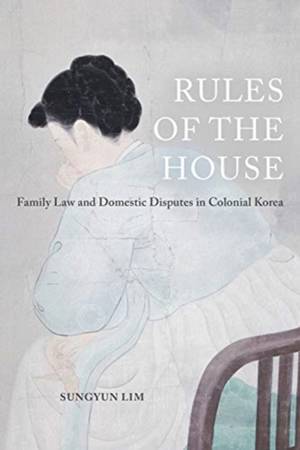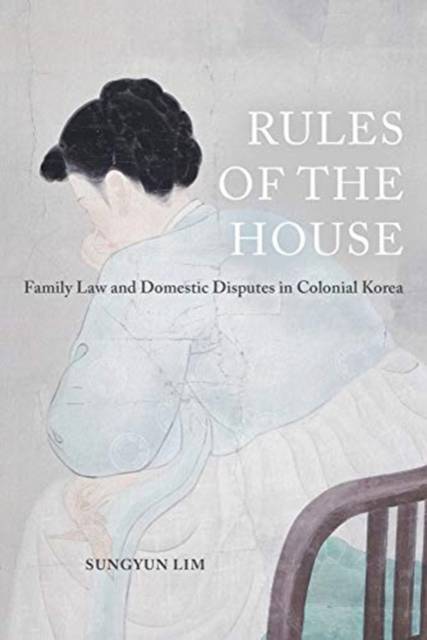
Door een staking bij bpost kan je online bestelling op dit moment iets langer onderweg zijn dan voorzien. Dringend iets nodig? Onze winkels ontvangen jou met open armen!
- Afhalen na 1 uur in een winkel met voorraad
- Gratis thuislevering in België vanaf € 30
- Ruim aanbod met 7 miljoen producten
Door een staking bij bpost kan je online bestelling op dit moment iets langer onderweg zijn dan voorzien. Dringend iets nodig? Onze winkels ontvangen jou met open armen!
- Afhalen na 1 uur in een winkel met voorraad
- Gratis thuislevering in België vanaf € 30
- Ruim aanbod met 7 miljoen producten
Zoeken
€ 59,45
+ 118 punten
Omschrijving
A free ebook version of this title is available through Luminos, University of California Press's Open Access publishing program for monographs. Visit www.luminosoa.org to learn more.
Rules of the House offers a dynamic revisionist account of the Japanese colonial rule of Korea (1910-1945) by examining the roles of women in the civil courts. Challenging the dominant view that women were victimized by the Japanese family laws and its patriarchal biases, Sungyun Lim argues that Korean women had to struggle equally against Korean patriarchal interests. Moreover, women were not passive victims; instead, they proactively struggled to expand their rights by participating in the Japanese colonial legal system. In turn, the Japanese doctrine of promoting progressive legal rights would prove advantageous to them. Following female plaintiffs and their civil disputes from the precolonial Choson dynasty through colonial times and into postcolonial reforms, this book presents a new and groundbreaking story about Korean women's legal struggles, revealing their surprising collaborative relationship with the colonial state.
Rules of the House offers a dynamic revisionist account of the Japanese colonial rule of Korea (1910-1945) by examining the roles of women in the civil courts. Challenging the dominant view that women were victimized by the Japanese family laws and its patriarchal biases, Sungyun Lim argues that Korean women had to struggle equally against Korean patriarchal interests. Moreover, women were not passive victims; instead, they proactively struggled to expand their rights by participating in the Japanese colonial legal system. In turn, the Japanese doctrine of promoting progressive legal rights would prove advantageous to them. Following female plaintiffs and their civil disputes from the precolonial Choson dynasty through colonial times and into postcolonial reforms, this book presents a new and groundbreaking story about Korean women's legal struggles, revealing their surprising collaborative relationship with the colonial state.
Specificaties
Betrokkenen
- Auteur(s):
- Uitgeverij:
Inhoud
- Aantal bladzijden:
- 188
- Taal:
- Engels
- Reeks:
- Reeksnummer:
- nr. 2
Eigenschappen
- Productcode (EAN):
- 9780520302525
- Verschijningsdatum:
- 13/11/2018
- Uitvoering:
- Paperback
- Formaat:
- Trade paperback (VS)
- Afmetingen:
- 152 mm x 229 mm
- Gewicht:
- 272 g

Alleen bij Standaard Boekhandel
+ 118 punten op je klantenkaart van Standaard Boekhandel
Beoordelingen
We publiceren alleen reviews die voldoen aan de voorwaarden voor reviews. Bekijk onze voorwaarden voor reviews.











